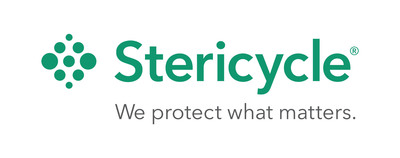Stericycle's Third Annual Healthcare Workplace Safety Trend Report Reveals Significant Challenges for Healthcare Professionals and Consumers
- None.
- None.
Insights
Analyzing...
Report raises concern over proper medical waste management and safety within healthcare organizations and at-home care
This year's key findings found 9 in 10 of the Healthcare Professionals (HCPs) and consumers surveyed agree that medical waste management is important in delivering the best possible patient care. Most of the HCPs and administrators surveyed say that improper medical waste disposal puts the physical safety (
"Following the pandemic, the
Additional insights from the report include:
- Stress Levels Have Decreased After the Peak of the Pandemic But Remain High: While negative feelings from HCPs have decreased since 2021, they are still remarkably high as we continue to face new COVID-19 variants. Sixty-three percent of the HCPs surveyed said they are exhibiting negative feelings (e.g., "Stressed", "Burnt-out", "Exhausted") at work, and only a quarter of HCPs feel "Safe" in their roles. Forty-four percent of the HCPs surveyed are feeling worse about their level of day-to-day stress than the previous year.
- Ongoing Staffing and Patient Challenges are Perpetuating Burnout: Issues of understaffing, patient volume, workload, hours and administrative burdens are the top reasons why HCPs (primarily providers) reported feeling burnt-out, exhausted, or distracted at work. A more troubling trend, many of the HCPs surveyed said they believe that patients are refusing recommended care (
60% ), behaving poorly (53% ) and becoming combative (46% ) more frequently compared to last year. Almost two-thirds (63% ) are concerned that they will be injured at work as a result. - Proper Disposal of Medical Waste is Essential but Misunderstood: While
95% of the HCPs surveyed agree that improper disposal of medical waste puts the physical safety of HCP workers at risk, only33% strongly agree that they have a solid understanding of how their organization handles this type of waste. Improper handling and disposal are recognized as major concerns, which can negatively impact both the safety of workers and patients, but a shortage of personnel is hindering the possibility of top-quality care. - Risks to the Environment Cannot Be Overlooked: Over
90% of the HCPs surveyed agree that improper medical/biohazardous waste management can harm the environment and/or have long-lasting impacts on health and well-being. Despite recognizing the harmful impacts on the environment,37% of the HCPs said they do not believe their organizations are doing enough to reduce those impacts. Many do not believe their organizations have innovative practices (60% ) or enough staff and monetary resources for proper regulated medical/biohazardous waste disposal (59% ). - The Rise of At-Home Care Generates New Challenges For Healthcare Workers: Nearly all HCPs surveyed agree that at-home care settings introduce new challenges for proper disposal of pharmaceutical and medical waste and the ability to provide the best care. Unhygienic conditions, entering/working alone, and in-home violence are seen as the three biggest risks to HCP worker safety in at-home care settings.
- Amidst an Opioid Epidemic, Drug Diversion Requires Proactive Measures: Alongside a worsening opioid epidemic,
95% of the HCPs surveyed believe that many healthcare consumers keep their leftover prescription drugs for future use and don't know how to properly dispose of them (93% ). Many consumers are not as familiar with the dangers of drug diversion or its impact on the opioid epidemic, with just77% of respondents saying that drug diversion puts the community at risk, compared to92% of HCPs.
These findings emphasize the need for a greater awareness of HCP and patient safety and what specific aspects of daily care could be improved to protect their health and well-being.
This study surveyed 500 healthcare professionals, including 400 healthcare practitioners (those who have direct patient interaction and currently practice as a physician, nurse, or another related role) and 100 administrators (those who are currently at an executive leadership or senior management level in a healthcare organization.) Both audiences were required to work in an organization that deals with medical waste management in some regard, whether they are personally responsible for decision making or not. For the first time, this study surveyed 700 healthcare consumers as well.
For more information about Stericycle and to access the Healthcare Workplace Safety Trend Report and multimedia assets, visit Stericycle's website.
About Stericycle
Stericycle, Inc., is a
Media Contacts:
Media Relations
Stericycle, Inc.
media@stericycle.com
![]() View original content to download multimedia:https://www.prnewswire.com/news-releases/stericycles-third-annual-healthcare-workplace-safety-trend-report-reveals-significant-challenges-for-healthcare-professionals-and-consumers-302005306.html
View original content to download multimedia:https://www.prnewswire.com/news-releases/stericycles-third-annual-healthcare-workplace-safety-trend-report-reveals-significant-challenges-for-healthcare-professionals-and-consumers-302005306.html
SOURCE Stericycle








